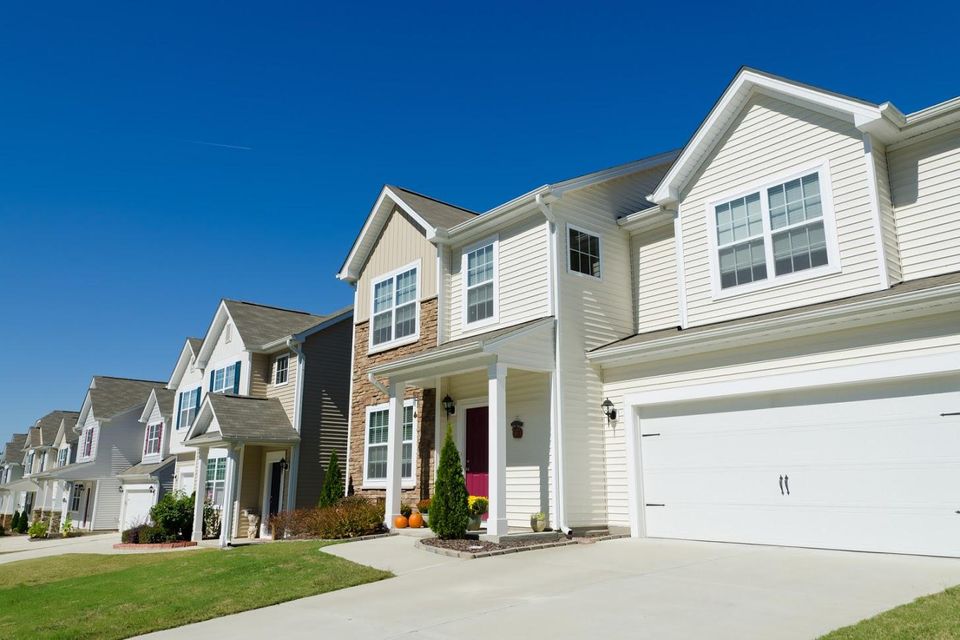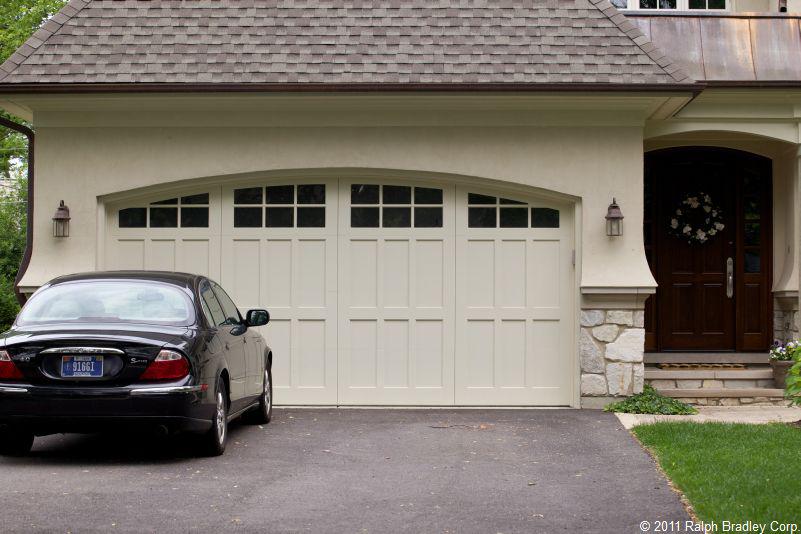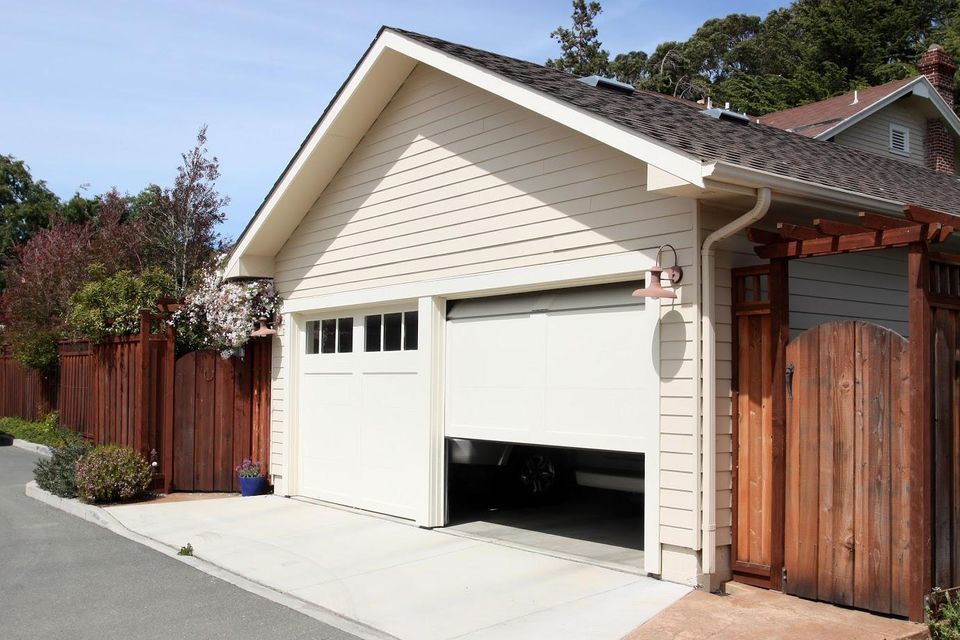Blog
EDELEN DOOR & WINDOW BLOG

By websitebuilder
•
January 8, 2020
A garage door spring is a small but integral part of a garage door's mechanism. The point of a garage door spring is to make the door open more easily. The spring takes on the torque of the door to make it seem lighter to lift. The springs are not typically something you really need to think about until something goes wrong with them. Over time, the springs can break. The following are some things you should know about broken garage door springs. Why Does a Garage Door Spring Break? Several reasons exist for why a garage door spring can break. Normal wear and tear is the most common reason. Some homeowners may not be aware that the springs will wear out. When you open and close the door several times a day, the springs can break down and eventually snap. Exposure to the elements is another common cause of broken springs. When the springs get wet, they rust. The rust weakens the spring and reduces the amount of friction on the spring. This causes the spring to wear out faster. If you have not done regular maintenance on your springs, especially keeping them lubricated, they can wear out prematurely. How Can You Tell if You Have a Broken Garage Door Spring? If your garage door begins to act strangely or seems like it has problems opening and closing, you likely have a broken garage door spring. One sign to look for is disconnected door cables. The door cables will appear as though they fly around. However, the cables are likely just fine. Your spring, however, needs replacing. If the top of your garage door seems bent, the culprit could be a broken or malfunctioning garage door spring. When the spring is not functional, the door takes on more weight than it is meant to. When you try to raise the door without properly working springs, the door can bend under the extra weight. You may also notice your garage door closing faster than it should. It may appear to almost fall. When the spring does not work, it cannot adequately carry the weight of the door as it closes. Therefore, the door will not move smoothly as it lowers but close quickly under the force of gravity. Another sign of a problem with your springs is if you are unable to lift the door with the emergency rope. If you try to pull on the rope and the door will not open, chances are that you have a problem with your springs. When Should You Replace the Garage Door Springs? Most homeowners replace the garage door springs when they appear broken or problematic. If you want to be proactive and avoid any issues with your door, you may want to replace your springs as soon as you notice any sign of wear and tear. The frequency of spring replacement will depend on your own circumstances. How often you open and close your garage door is the primary determining factor. Temperature and precipitation can also have an impact on the condition of your springs. How Do You Care for Garage Door Springs? The best prevention of broken springs is regular maintenance. You should inspect your springs at least a couple of times each year to look for any problems. Clean the springs with a damp cloth, and add some lubrication. You may want to coat the springs with a rust-preventative solution several times a year. If you notice an issue with your garage door springs, do not try to change them yourself. This is a more dangerous job than you may realize and is best left to the professionals at Edelen Door & Window .

By websitebuilder
•
December 2, 2019
If your home has an older storm door — or if it does not have a storm door at all — then you might want to start shopping for one. If you have wondered why this home improvement project should be a priority, consider these five key benefits of installing a new storm door on your home. 1. Keep Insects Out of Your Home Flies, mosquitoes, and other pests can be a major pain. If you keep your windows or doors open, you have to worry about them finding their way into your home. With a storm door in place, you can help keep them at bay. This is true with both storm doors with full glass panels and those that have good-quality screens for ventilation. 2. Enjoy a View of the Outdoors One positive aspect of installing a storm door is the fact that it can give you a great view of the outdoors, and it can allow you and your family to enjoy natural light, too. Depending on how much natural light you prefer and how much of a view you want to have, you can choose between different types of storm doors. For example, a full-view storm door features a full-length glass panel. This provides a nice stream of natural light into your home and makes it easy to see outside. If you would like a little more privacy or if you only want a limited amount of natural light, you can choose a door that features just one or two glass panels. If you would like to maximize your view but minimize natural light and privacy issues, you can also add tint to a full-view storm door. Many storm door options are available for any homeowner, no matter what their preferences might be. 3. Protect Your Home From the Elements One of the primary purposes of a storm door is to protect your door and your home from the elements. If your storm door is securely installed and closed, it will help prevent rain or snow from getting into your home, for example. It is also great for preventing water damage. 4. Increase Energy Efficiency Having a good-quality exterior door will help you protect your home from hot or cold weather. This is particularly true if you ensure that your exterior doors have good-quality weatherstripping to provide a better seal. However, installing a storm door is great for increasing energy efficiency even more. With a properly installed storm door, your family can enjoy an extra barrier of protection from winter or summer weather. This door can help you maintain more comfortable temperatures in your home, which, in turn, helps you reduce your heating and cooling bills year-round. 5. Enjoy Proper Ventilation Proper ventilation helps improve indoor air quality. It helps prevent excess moisture in the home so you can prevent moisture-related damage and mold or mildew growth. It can even help with things like cutting down on odors in the home. Of course, although ventilation is important, you do not want to allow too much air to flow in and out of the home. With a storm door that features a screen or vents, you and your family can enjoy an appropriate amount of ventilation. If your home has an old and worn-out storm door, think about replacing it. If your home does not have a storm door at all, you can enjoy the benefits above and more by installing one. Contact us at Edelen Door & Window, and we can help you choose and install a storm door that is right for your home. We look forward to speaking with you.

By websitebuilder
•
October 31, 2019
Backing into the garage door with your car is not as uncommon as one might think. Garage doors are tough, but if you hit your door, you need to check out the situation and determine if you need a door company to come and make repairs. Inspect the Damage The first thing you need to do after hitting the garage door with your car is to take a look at the door, the frame, and the tracks. If the collision bends a panel, you will more than likely need a replacement. The track that the door rides in is also an area of concern. Check it for twists or warping before you try and move the door. If your garage door has an automatic door opener, check the track and brackets that connect the door to the opener as well. Damage to the opener is not very likely but it is a good idea to check it while you are looking over the situation. Open the Door Carefully If your car is still inside the garage, it is a good idea to see if you can open the door manually and get the car out of the garage. Depending on the amount of damage, the door will still open and close, but be careful opening it, because there is a chance the door could come off the track or bind when you are opening it. Do not use the door opener to try and force the door open. If the door does bind, the motor in the opener could overheat and suffer catastrophic damage. If the door seems to move okay and then binds part way up, the opener could pull the door off the track, which further complicates the situation. Call a Garage Door Company You may be tempted to try and fix the door yourself, but it is better to call a garage door company and have them send a professional technician out to assess the situation. Even if the door looks like it only has damage to a door panel or two, the potential for damage to springs, cables, and rollers is a concern. The door track may not be square anymore and fixing the door may require parts and adjustments that are not as simple as they appear. If the track needs adjusting, getting it square and aligned properly to the door is critical to the smooth operation of the door. If the door binds even a little, it can cause the door to not open or close fully, creating a security and safety risk for you and your family. The technician can give you an estimate of the cost to repair the door while they are there. A single panel on the door may not cost much, but if there is damage to several panels and the tracks, you could be looking at a greater amount of money to repair the door. Call Your Insurance Company Call your homeowner's insurance company after the collision and ask them about coverage for the damage to the door. In most cases, the insurance will cover the damage but the cost of the repair may be less than the deductible, so take that into account before submitting your damage claim. If there is damage to the car as well, you may want to call your car insurance company and see if they will cover the car repair. Coverage will depend on the company, but many companies will cover damage like this. Edelen Door & Window can help you repair the damage to your garage door and get your door working properly again. Out technicians are proficient with door repairs and are happy to come out and complete repairs from worn seals to full door replacements. Give us a call and we will come assess the situation right away.

By websitebuilder
•
September 30, 2019
A bay window actually consists of three windows that work together as a single unit. The unit features a central window, usually stationary, flanked by two smaller windows. The side windows might also be stationary, or they might be moveable. The three windows are set at one of four angles — 30-degree, 45-degree, 60-degree, and 90-degree. Adding a bay window is a bit of a construction project, but one that can return big benefits. Read about four benefits of bay windows. 1. Added Space When you have contractors replace a flat window with a bay unit, they have to bump out the wall by as much as 36 inches, depending on the degree of angle of the three windows. While 36 inches isn't a lot, those inches still add a bit more space inside your room. On the outside, you usually have the bay tucked under an eave or topped with a roof skirt. Many homeowners set a chair or even a table and chairs in the bay window space. Likewise, though the actual increase in floor space isn't very significant, you tend to get a lot more visual space. The space you've added is made up almost entirely of glass, so you have a minimal visual transition between the interior of your home and the outdoors. 2. More Natural Light What else comes with an increase in windows? When you replace a single window with a bay window, you get all that extra glass. Even if the contractors don't have to widen the original hole in the wall much, you have so much more glass to let light into your home. Increased natural light can decrease your energy bills since you won't have to run electrical lights as much. Bay windows also afford you more exterior views. So, as the sun is streaming inside through your three windows, you also get more of a panorama of the outdoors. As a bonus, the increased views and light can improve your comfort and productivity because they help regulate your circadian rhythm. 3. Additional Ventilation While you can choose one of the bay window styles with stationary side windows, many homeowners opt for the styles with movable side windows. If you opt for movable windows, you can also increase your ventilation in that room. Bay windows often replace picture windows, which are always stationary, so movable windows allow for more air flow. Additionally, the side windows projecting out at an angle also afford you different configurations for ventilation. For example, you can open both windows to catch a breeze that's funneled into the room. Conversely, you can open just one window to harness a breeze or avoid wind gusts. If you choose double-hung windows, which open from the top and bottom, you have even more options. 4. Window Seat Potential Although many homeowners place a table or chairs in a bay window, others opt to construct a permanent window seat. While you can adapt a window seat to almost any window, the geometry created by the bump out of a bay window lends itself to the installation. A window seat can even be a do-it-yourself project if you're handy with tools and lumber. Window seats carry some advantages. For one, they offer a comfortable spot for enjoying the natural light and views of your bay windows. You can even outfit a large window seat for use as a day bed. Likewise, you can have them build with a well for storage. Conversely, you can leave the front open to provide cubbies. All of the above advantages help make your house more desirable to potential home buyers. Even if you're not selling your home any time soon, a bay window adds value to your everyday living. So, consider having a bay window added to your home if any of the above benefits appeal to you. When you're ready for the project, call Edelen Door & Window .

By websitebuilder
•
September 5, 2019
Your garage door is important for offering curb appeal and security, but with so many types of doors from which to choose, you may not know which is right for you. Tilt-up and sectional garage doors are the most common, but one may be a better option for your needs and home. To learn more about tilt-up versus sectional garage doors, keep reading. Cost Typically, tilt-up garage doors are more affordable, costing between $400 to $700 for and tilt-up aluminum or wood garage door. A sectional garage door may cost anywhere between $800 and $3,000, depending on the materials and style. If you don't already have an automatic garage door opener, you can choose to install one with either a tilt-up or a sectional. This will add another $130 to $300 to the total cost of the garage door and installation. Functionality Both tilt-up and sectional garage doors work by lifting the garage door and letting it hang from the ceiling. With a tilt-up garage door, the door hangs from the top of the garage door frame. This makes it great for garages with low ceilings, but it also makes for a tighter fit when parking in your garage. Sectional garage doors roll up a track to open. The various hinges allow each section to bend as it follows the curve of the track. When fully open, the door hangs from the ceiling of the garage, giving you plenty of clearance, unless you have a low ceiling. Style When it comes to style, you may actually have more options with a tilt-up garage door. Sectional doors do come in a variety of styles, but the fact the door is made up of several segments limits what manufacturers can do with the door. Cheaper tilt-up garage doors will also have limited options, but more expensive ones can be customized with windows and an entry door. Safety For the most part, sectional garage doors are usually safer than tilt-up garage doors. First, tilt-up garage doors may be made from thin plywood, making it easy for criminals to break down the door. The biggest reason tilt-up garage doors are not as safe as sectional doors, however, is that they rely on extension springs to work. Most garage doors rely on springs to help open and close the door, but extension springs are more dangerous than torsion springs, which are commonly used on sectional doors. These extension springs sit along both sides of the door, and if they become loose, they can cause severe damage, injury or death. Durability The durability of your door really depends on the material used. For example, a plywood tilt-up garage door can easily crack, chip, etc. An aluminum one is less likely to break, but it can dent. Because they are usually thicker, however, sectional doors are usually more durable, regardless of material. Even if they do get damaged, however, you only have to replace the damaged section instead of the entire door. Wooden sectional garage doors may be prone to rot or swelling if you don't maintain the wood, and steel sectional garage doors can dent if hit hard enough. You can reduce the risk of damage by choosing thicker steel. As an added benefit, steel sectional garage doors usually have two layers of steel, so even if one layer gets punctured, the door will continue to function. A tilt-up garage door is an affordable option, but the door can easily be damaged, which requires total replacement. A sectional door may cost more initially, but it will likely last longer and give you fewer problems. For more information about garage doors, contact us at Edelen Door & Window today.

By websitebuilder
•
July 22, 2019
Garage doors are engineered to last for a long time, but nothing lasts forever. When components like your garage door springs begin to feel their age, the end results can quickly turn hazardous for you and your family. Worn-out springs can fail without warning, putting anyone in your door's path in harm's way. Prevention is an essential part of garage door maintenance, but you may not recognize when your garage door springs need replacement. Read on for some signs to watch out for.

By websitebuilder
•
June 20, 2019
Homeowners commonly access their houses through the garage during the day,especially if they have a busy schedule that includes a lot of driving. Unfortunately, thieves also tend to target garages, especially since most people wouldn't suspect any problems if they saw a car drive down a driveway and into a garage. However, reports have shown that about 9% of burglars enter homes through the garage, which is why locking down the area is so important. Here are two simple ways to improve your garage security. 1. Be Careful With Garage Door Codes and Remotes When you think about it, your garage remote is just as good as a key to your home, especially if you don't typically lock the door between your garage and your house. While you may be tempted to give out your garage door code or remote to kids, family members, and neighbors, you never know when that remote will enter into the wrong hands. In addition to being very selective about who you grant access to your garage door remotes and codes, keep them locked down when they are in your vehicle. For instance, while you may normally keep your garage door remote on the visor of your car, some police forces have reported car robberies that target acquiring remotes to access homes. Instead, consider keeping your garage door remote with you or doing away with it altogether if you can. Some newer vehicles have built-in garage door transmitters that only work when your specific key fob is installed in the car. Otherwise, you could always enter the code on your garage door keypad when you get to your house- and keep your remotes in a safe, locked place inside. 2. Frost Your Garage Windows Aline of horizontal windows across your garage door can brighten up your space during the day while adding visual interest to the outside of your home. However, garage doors can also make it simple for potential robbers to canvas your property or spot items they might be interested in walking away with. Depending on the setup of your home, robbers may even be able to glance through your garage door windows to see what kind of locks you have on the door to your home, making it easier for them to plan their next move. However, all of those tasks become more difficult when potential burglars can't see into the garage space. An easy way to increase your garage security is by frosting your windows. While many people consider permanently frosting garage door glass by using sandblasting or etching paste, you can actually frost them on a temporary basis by using removable privacy film. This special film is clear but opaque, allowing light to pass through while distorting the view behind the glass. With one adhesive side, applying the film is as easy as measuring your garage door windows, cleaning the glass, and pressing the film into place. If you ever move or change your mind about how you want to block the view, you can always remove the film. If you are concerned about how the frosted windows will look, keep in mind that different opacity strengths and even designs are available. For instance, you could opt fora geometric pattern that meshes well with your home's siding or a frosted view of birch trees to add an organic feeling to your garage design. Remember, if you feel that your garage is unsafe, consider the possibility of replacing the door with the help of our team here at Edelen Door & Window . Since 1968, we have been helping homeowners with everything from garage door repairs, installations,and on going maintenance, helping homes to stay more functional, beautiful, and secure.

By websitebuilder
•
May 28, 2019
If the garage door on your home is aging, there are some good reasons to consider replacing the door with a new one. While the door may function, if you don’t get the performance you need from the garage door, you may want to upgrade to a modern door for your garage. Security On many homes, the garage is part of the house and has an access point into the living space from the garage. While this provides convenience for the homeowner, it can also be a way for someone to enter the home that should not. Security of your garage door is critical and is not as difficult as you may think. Almost every garage door on the market has a locking bar on the inside of the door that is made from steel and keeps the door from opening. If you use the lock, the door is very difficult to open from the outside. Additionally, many doors allow you to add a padlock to the lock bar to secure it from both sides. For garage doors that open vertically, installing an electric garage door opener offers you the advantage of opening the door as you arrive home, but makes it difficult to open without the remote control. The door opener is not a lock, but it does keep the door down until someone activates the opener. Efficiency Energy efficiency is an important part of choosing a door for your garage. The material the door is made from and how well insulated the door is can make a big difference in heat and cool air loss in your home. A door that has no insulation and a lot of gaps around the door may leak, wasting money in the process. A tight fitting door will help prevent the heat and cool air loss and make the garage much more comfortable to work in if you use it as a workshop or to maintain your vehicles. Noise Level Old garage doors are not typically well insulated so road noise coming through the door can be a problem if you live on a busy street. If you have a living space that connects to or borders the garage, that noise can transfer to the living space. Noise from the door opening and closing is also often a problem with older doors. Replacing the door with a newer, lightweight door will allow it to slide up and down the track easier with less noise transfer into the home. Style Selecting a new door for the garage on your home may come down to the look and style of the door. Consider how much of the front of your home is garage door, and then consider how it looks from the road. If the door does not compliment the look and feel of the home, you may want to change it. For example, a home built in the Craftsman period should have a door that looks like wooden tri-fold doors, and glass panels in the top third of the door. Luckily, with many vintage styles, you don't have to have the original design to get the original look because many companies make doors that replicate an older design and still function efficiently. The replica doors are efficient, lightweight, and can enhance the look of the home. Doors that replicate the look of older styles or types of doors are available from many door manufacturers. At Edelen Door & Window , we can help you find the right style door that offers the security and efficiency you need, and our professional installers will install it on your garage. Give us a call or come by and explore the options we have waiting for you today. We look forward to being your garage door company.

By websitebuilder
•
April 15, 2019
You expect a lot from your garage door. You expect it to keep weather and critters out of your home, and you want it to protect your vehicles and other belongings. So why shouldn't it expect a lot from you? Taking action when something is wrong with your door is highly beneficial for your home. A warped garage door is not a functional garage door. Read on to learn more about the causes of a warped garage door, ways to prevent this problem, and tips for addressing it quickly.

By websitebuilder
•
March 14, 2019
Keeping your home safe from burglars is one of your biggest goals when owning a home. However, your very own windows and doors can work against you, which potentially gives criminals easy access to your home, belongings, and family. Luckily, you can do a lot to better secure your doors and windows, so check out these four tips to improve your home's security.
Browse Our Website
Contact Information
Phone: (314) 521-2060
Email:
questions@edelendoor.com
Address: 4170 Shoreline Drive,
Earth City, MO 63045
Business Hours:
- Mon - Fri
- -
- Saturday
- -
- Sunday
- Closed
Our Location
Content, including images, displayed on this website is protected by copyright laws. Downloading, republication, retransmission or reproduction of content on this website is strictly prohibited. Terms of Use
| Privacy Policy


